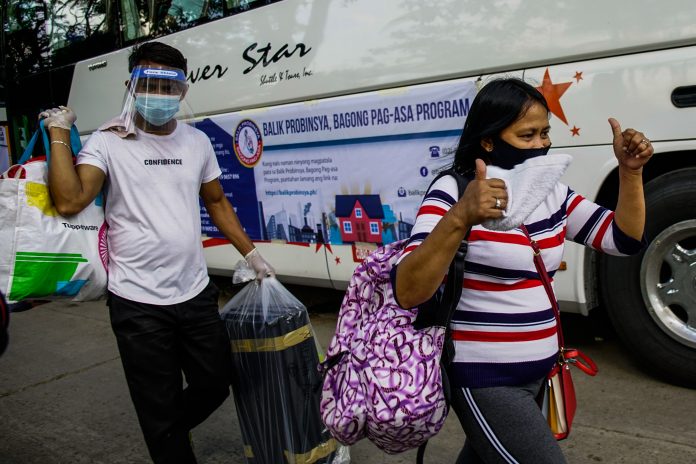The “Balik Probinsya,” or Back to the Province program, recently revived by the administration of President Rodrigo Duterte may sound good given the exponential growth in the city population over the years.
But I really doubt if this would make any significant headway in decongesting the city within the remainder of the administration’s term two years from now.
Why so?
The proposed program appears to be no different from the relocation programs for informal settlers implemented by successive administrations.
In the 60s, I now recall, the Manila city government swooped down on squatter colonies in Intramuros and carted them off to Sapang Palay in Bulacan.
More recently, informal settlers and homeless people in the city have been similarly uprooted and sent off to various resettlement sites, such as in San Jose del Monte, also in Bulacan.
Life in these resettlement areas, however, has proven to be difficult for those uprooted from their shanties in the city as they had no jobs nor livelihood opportunities.
If they did have jobs, they had to walk far to get public transportation.
And they had to contend as well with poor but costly water and electricity services, and inadequate education and health facilities.
The result: Many of them go back to the city where they can at least earn a living doing odd jobs, including scavenging.
The Balik Probinsya program may be well-intentioned, but it raises many questions.
Who should be encouraged to go back to their home provinces? Only the poor? What can government promise them so they are willing to return to their home provinces?
How much would the program cost? The provision of homes, social services and jobs would certainly cost a lot of money.
And we’re talking of sending hundreds of thousands of families now living in urban poor communities back to their home provinces or to sparsely populated provinces.
How long would the program last? What can be achieved in the remainder of this administration?
Given the enormity of the problem of urban congestion, I can therefore understand why the Church, though in agreement in principle with the basic rationale of Balik Probinsya, which is to decongest the city, wants further study on how it should be implemented.

Bishop Broderick Pabillo, apostolic administrator of the Manila archdiocese, believes that lessons from the past should be taken more seriously.
The government, he says, should takes realities in the rural areas into account to make the revived program achieve intended results.
“The development plan—and the budget—should all be aligned to give importance to the rural areas … and to develop the agricultural and fishery sectors in our society,” he said.
The prelate apparently is aware that the back to the province proposal is not new and “they have all failed” because those who were sent to the provinces came back to cities after some time because of the need for jobs.
“Now they promise to give skills training to the people and give them a bit of a capital for them to stay there. This is already a positive realization,” Bishop Pabillo said.
But this is obviously not enough, he pointed out. The government and the private sector “should pour massive investment” in the rural areas so people will get decent jobs and adequate social services such as health, education and housing.
The bishop also said that the pandemic should serve as a “wake-up call” for the government to pay attention to the “neglected” agricultural sector.
The quarantine period, he said, has once more underscored the services that the farmers and fisher folk render to the public: “They are essential to our economy and to our survival.”
Ernesto M. Hilario writes on political and social justice issues for various publications in the Philippines. The views and opinions expressed in this article are those of the author and do not necessarily reflect the official editorial position of LiCAS.news.









